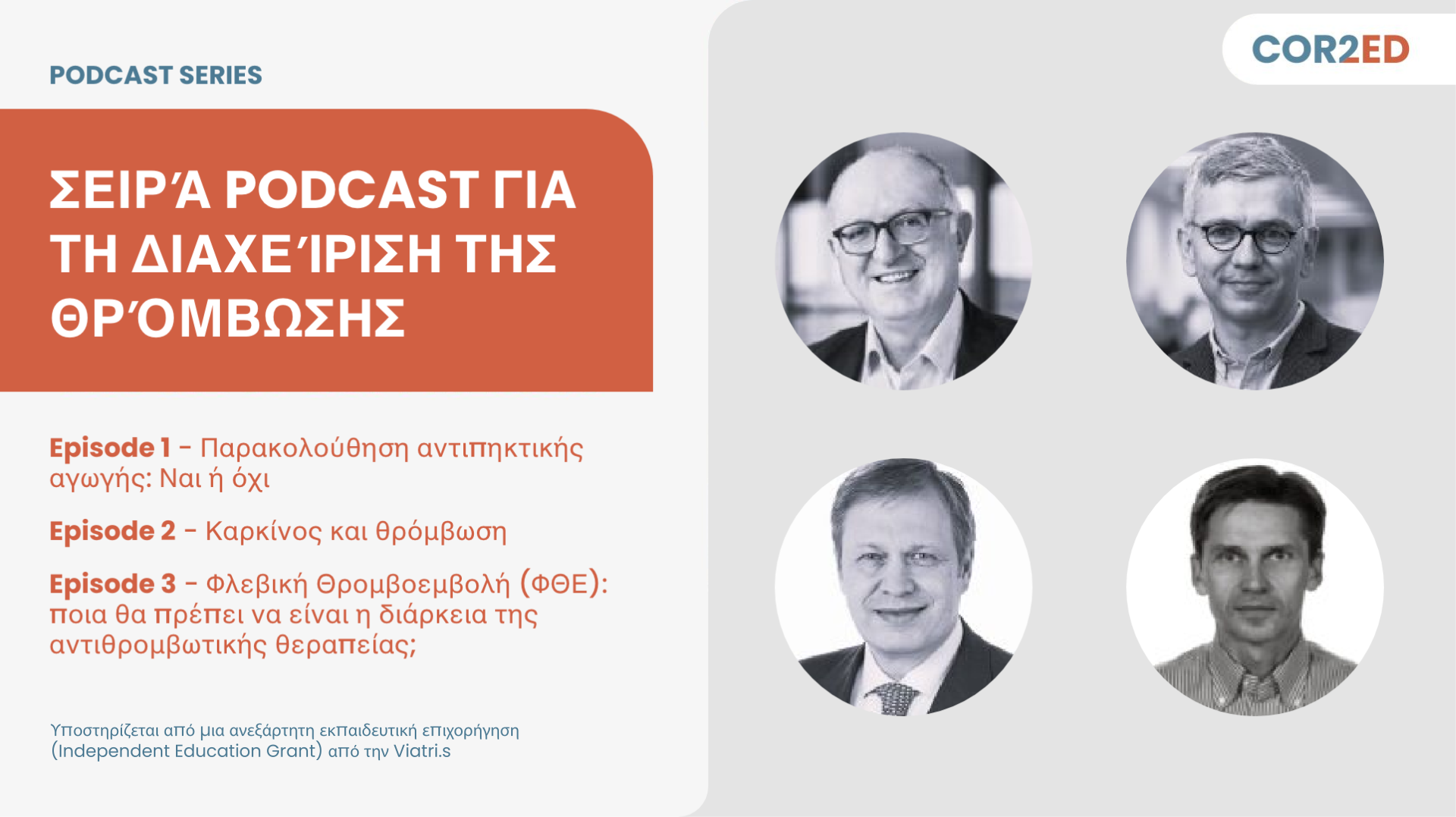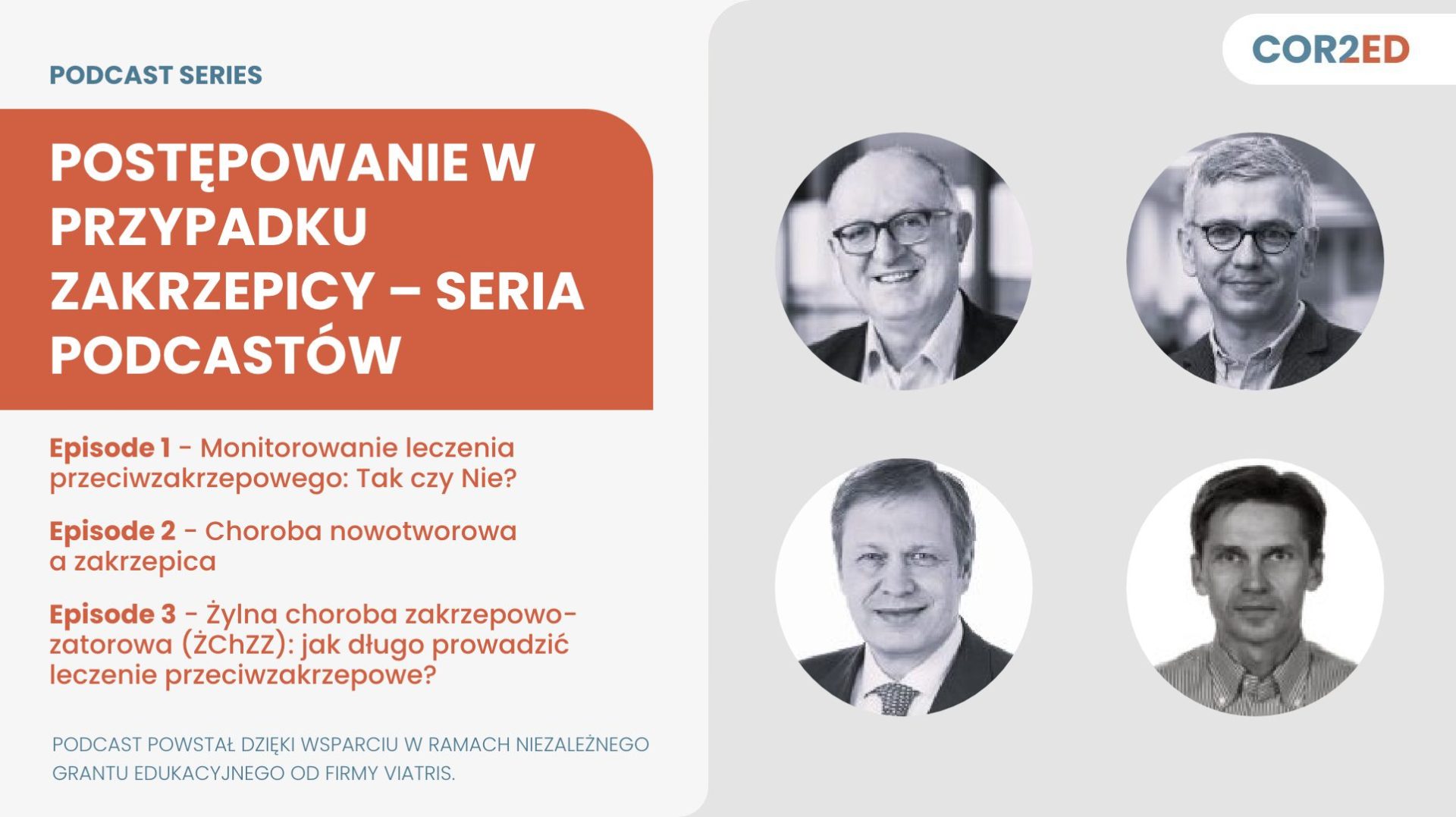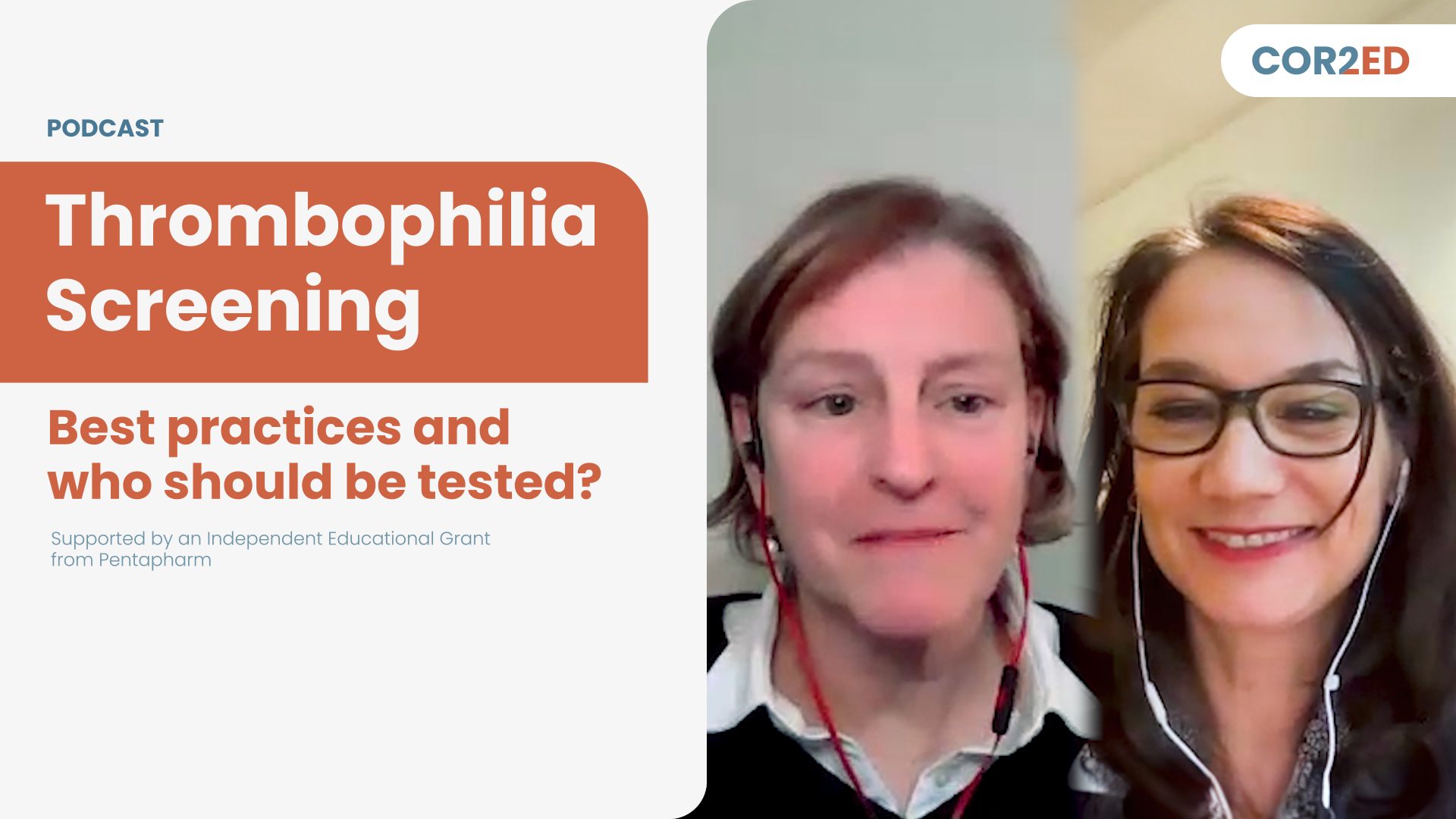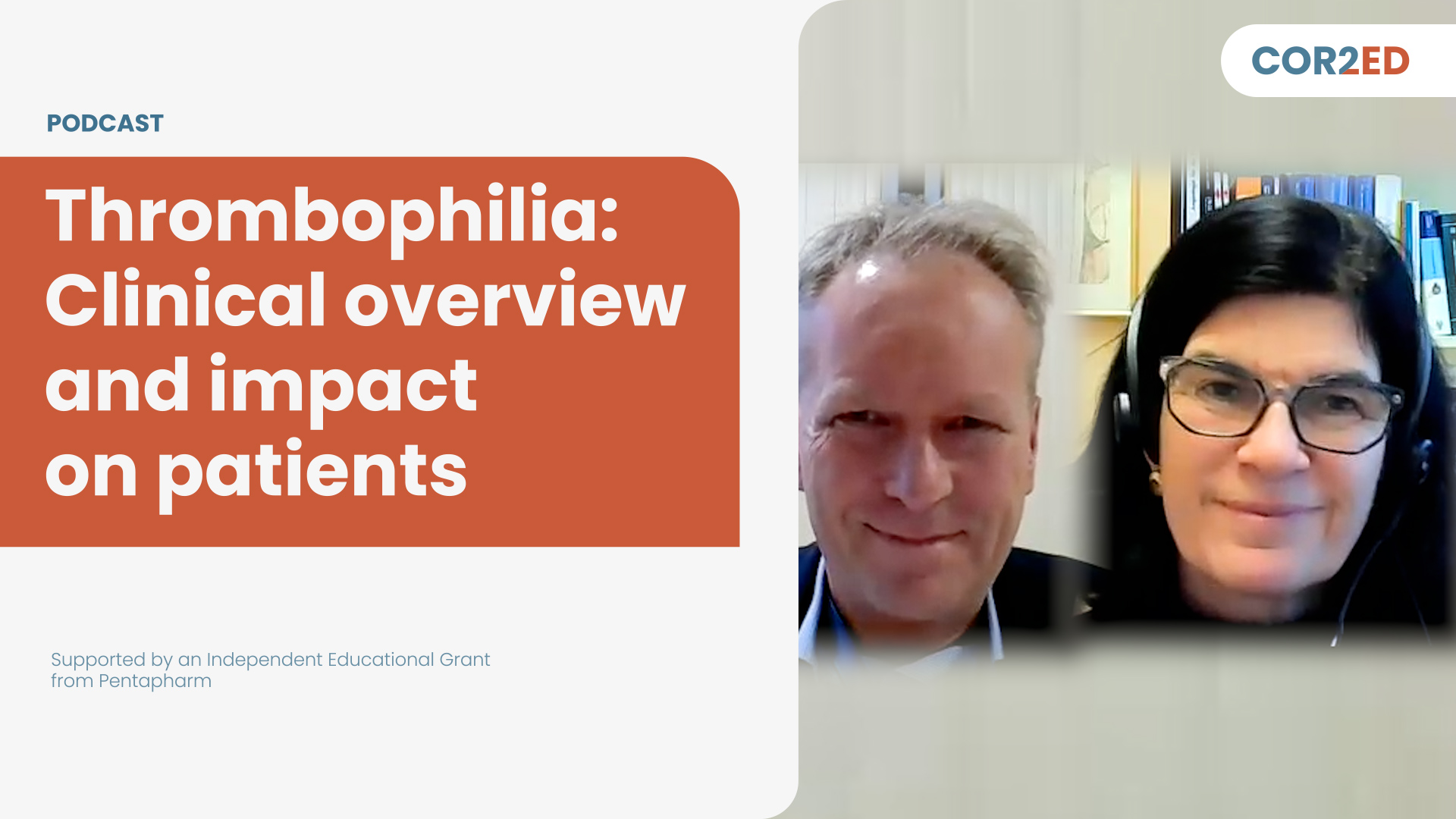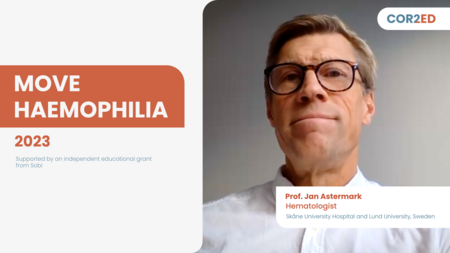Listen to the interview where Experts discuss cases of a patient preparing for lumbar surgery and a pregnant patient with questions about delivery and pain relief.
Welcome
Michael Mazzeffi (MM)
Hello everyone, my name is Michael Mazzeffi, I’m an anaesthesiologist and an intensive care physician. It’s a pleasure to be here with you today. I’m here with Dr Boban who will introduce herself.
Ana Boban (AB)
Hello everybody my name is Ana Boban, I’m working in the haemophilia centre in Zagreb, Croatia.
MM
We’re going to be speaking with you today about von Willebrand disease and specifically we’re going to talk about surgical patients with von Willebrand disease. We’re going to talk about two cases and we hope these will illustrate some important principles of patient management.
Case 1 – surgery in a patient with von Willebrand disease
MM
We have a 42-year-old man who presents for spine surgery, lumbar spine surgery. Interestingly, or of note, this patient has a history of von Willebrand disease type 2a and he has a history of some excessive bleeding with a prior dental procedure. You see the patient’s laboratory values here and importantly we have the patient’s von Willebrand factor antigen level and the von Willebrand factor ristocetin cofactor activity.
Now I want to ask Dr Boban, let’s say this patient comes to see you before their surgery, about a week ahead of time so we have some time for planning, what laboratory tests would you send for the patient or would be important to consider? And how do you think we should treat this patient during the time around the time of surgery?
AB
This patient has an increased risk of bleeding during the surgery. This is obviously high-risk surgery, therefore we want to make sure that haemostasis at that time is perfect for this patient. We have a couple of options for treating patients with von Willebrand disease: DDAVP and von Willebrand factor concentrate. Regarding the low levels of available factor in this patient and the high-risk surgery I would go with von Willebrand factor concentrate to treat him.
To know how how to dose the treatment I would have to do another test for von Willebrand factor activity and factor VIII. If it’s possible, I would like to have data on how he responds to the treatment with von Willebrand factor concentrate, the half-life, so I can tailor the treatment. We want to make sure that the von Willebrand factor activity is more than 50%, but also avoid too high activity of factor VIII, to not increase the risk of thrombosis during the surgery.
MM
That’s very helpful. I can say as an anaesthesiologist it would be great if the haematologist that I were working with gave me some recommendations like that: a dose of von Willebrand factor concentrate and then how to monitor for the efficacy of that treatment.
Let me also ask you: would you use or recommend some other treatments, for example the use of antifibrinolytic drugs around the time of surgery? Is that something that might be helpful?
AB
Yes, antifibrinolytics are very helpful in patients with von Willebrand disease. Actually, they have a low risk of side effects. So yes, I would definitely include it. But I would also try to talk to the neurosurgeon to understand what kind of surgery is going to be performed and what is the risk of bleeding. I think the multi-disciplinary approach here and close collaboration between anaesthesiologist, neurosurgeon and haematologist is crucial.
Also, I would like to point out that good communication with the coagulation laboratory is crucial. Sometimes you will need to have results of von Willebrand factor levels and factor VIII levels quickly, within one or two hours. This sometimes has to be discussed in advance, so that the coagulation laboratory is expecting these samples to come to the laboratory and to be processed quickly.
What is the view of anaesthesiologist in this? Do you think you should have a good collaboration with haematologists during the operation or do you think that it can be all be settled in advance?
MM
Ideally, I think you have a good working relationship with the haematologist. Of course, we have a plan ahead of time and we can execute that plan but there always are unexpected events. So, it’s nice to be able to contact your colleague, the haematologist, in case there’s a little more bleeding than anticipated. Perhaps we need a second dose of von Willebrand factor concentrate or maybe a lower second dose? I think that would be the best kind of situation.
AB
I agree with you completely.
Case 2 –von Willebrand disease and delivery
AB
We have another patient: a 22-year-old lady who is pregnant, now at 32 weeks of has pregnancy. She has von Willebrand disease that was diagnosed when she was a child, because she has positive family history. Actually, during her lifetime she didn’t have many bleeding episodes. She has extended menstrual bleeding and couple of epistaxis but no other spontaneous bleedings. Now she is coming to the clinic and asking about delivery and anaesthesia. What would you recommend to her doctor Mazzeffi?
MM
My main point would be that with appropriate planning it is possible to safely have an epidural placed for labour analgesia or a spinal if needed for caesarean section. But appropriate planning is needed. If appropriate planning is in place, there’s probably minimal increased risk. So I think it is possible, but it will require measurement of von Willebrand factor levels, perhaps treatment. But it can be done safely and that’s great for women who want to have some pain relief during their delivery.
AB
That’s a very good answer and very positive for our patients with von Willebrand disease. We can tell them that delivery is actually something that is safe and, if managed properly, there is no increased risk of excessive bleeding.
Just to point out that for patients with von Willebrand disease the activity of von Willebrand factor rises throughout the pregnancy. For some patients the level is sufficient for epidural anaesthesia but for some patients it’s not enough. So, we have to know exactly what the level of von Willebrand factor is at the time of the delivery, to be able to add some haemostatic treatment if needed.
What do you think about patients after the delivery, do they have increased risk of bleeding at that period?
MM
I think that’s the period where we really have to be careful. At the time of the delivery everyone is very vigilant, paying close attention, but there is bleeding risk in the days following, as you know. I think we have to continue to carefully monitor the patient for at least a week or so after the surgery, to make sure we don’t miss a low level of von Willebrand factor and have excessive bleeding.
AB
We had a lot of patients that actually did fine throughout delivery and then afterwards had a significant decrease in von Willebrand factor activity and then needed treatment a couple of days after the delivery.
Key takeaways
AB
Can you please just sum up what you think are the most important issues regarding the patients with von Willebrand disease and spinal operation.
MM
My main takeaway points are:
- Planning is very important in advance
- A collaborative approach with good communication in case we have some excessive bleeding that we didn’t anticipate
- With good planning and appropriate treatment, we should be able to mitigate the risk and not have excessive bleeding in these kinds of cases
AB
I feel the same for the pregnant patients with von Willebrand disease. The most important things are:
- to plan ahead
- to have a multidisciplinary approach
- to have these procedures done in a facility that has a good haemostasis department, a good coagulation laboratory and also specialists of gynaecology and surgery
Thank you Dr Mazzeffi for this very nice interview with you, I enjoyed it.
MM
Same, I enjoyed it very much. Thank you.
Dr Ana Boban is Head of Haemophilia Centre at the University Hospital Centre Zagreb and Associate Professor of Internal Medicine at the School of Medicine of the University of Zagreb, Croatia. She has specialist degrees in Internal Medicine and Haematology. Dr Boban’s clinical work is in the field of benign haematology with the focus on bleeding disorders and thrombosis. Dr Boban is a member of national and international scientific and medical societies in the field of haemostasis and thrombosis and is currently serving as Executive Committee member of EAHAD. Dr Boban’s research interests include clinical haemophilia, carriers of haemophilia, von Willebrand disease, anticoagulant treatments and ITP.
Bayer, CSL Behring, Novo Nordisk, Octopharma, Pfizer, Roche, Sobi, Swixx Biopharma and Takeda.
Dr Mazzeffi is a cardiothoracic anesthesiologist and intensive care physician. He is currently Vice Chair for Faculty Affairs and Development in the department of anesthesiology at University of Virginia Health. He is an active clinical researcher with an interest in hemostasis, viscoelastic coagulation testing, extracorporeal membrane oxygenation, and acquired Von Willebrand Syndrome in patients on mechanical circulatory support. He is an active teacher and mentor for medical students, anesthesiology residents and fellows.
Hemosonics Corporation and Octapharma.
Other programmes of interest
Serie de podcasturi referitoare la gestionarea trombozei
Experți de renume din domeniul medical își împărtășesc perspectivele. Navigați în secțiuni pentru a selecta un episod al podcastului
Experts
Prof. Dimitrios Tsakiris, Dr Lars Asmis, Prof. Jerzy Windyga, Prof. Daniel BolligerΣειρά podcast για τη διαχείριση της θρόμβωσης
Αναλύσεις από καταξιωμένους ειδικούς ιατρούς. Πλοηγηθείτε στις καρτέλες για να επιλέξετε ένα επεισόδιο podcast
Experts
Prof. Dimitrios Tsakiris, Prof. Michael Nagler, Dr Lars Asmis, Prof. Jerzy WindygaPostępowanie w przypadku zakrzepicy – seria podcastów
Uznani eksperci dzielą się swoimi spostrzeżeniami. Kliknij na odpowiednią zakładkę, aby wybrać odcinek podcastu.
Experts
Prof. Dimitrios Tsakiris, Prof. Michael Nagler, Dr Lars Asmis, Prof. Jerzy WindygaThrombophilia testing: Who to test and when?
Episode 2 - Medical experts discuss the controversies around thrombophilia testing, review the current ASH guidelines and share their views on best practice
Experts
Prof. Saskia Middeldorp, Prof. Jean ConnorsThrombophilia: Clinical overview and impact on patients
Episode 1 - Experts discuss the main causes and symptoms of thrombophilia, and potential implications for the patient
Experts
Prof. Cedric Hermans, Prof. Sabine EichingerMOVE Haemophilia 2023
Implementing international guidelines and best practices for hemophilia in clinical practice


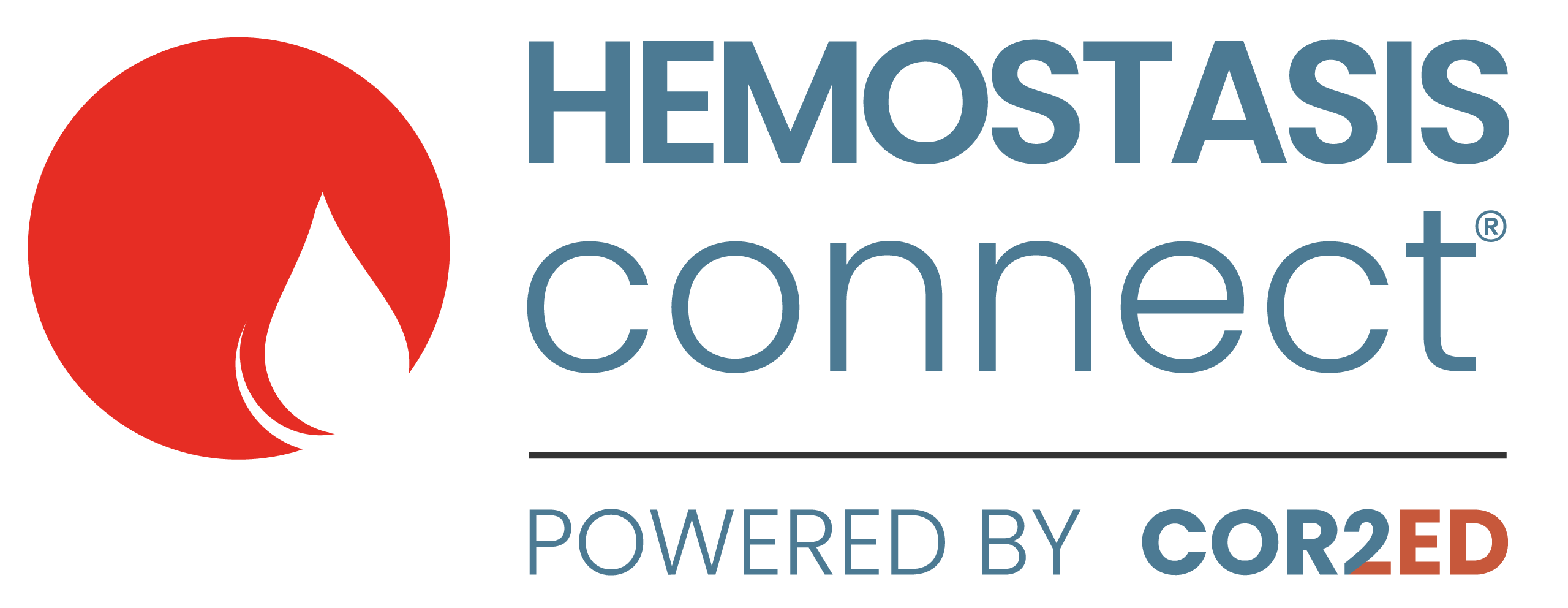

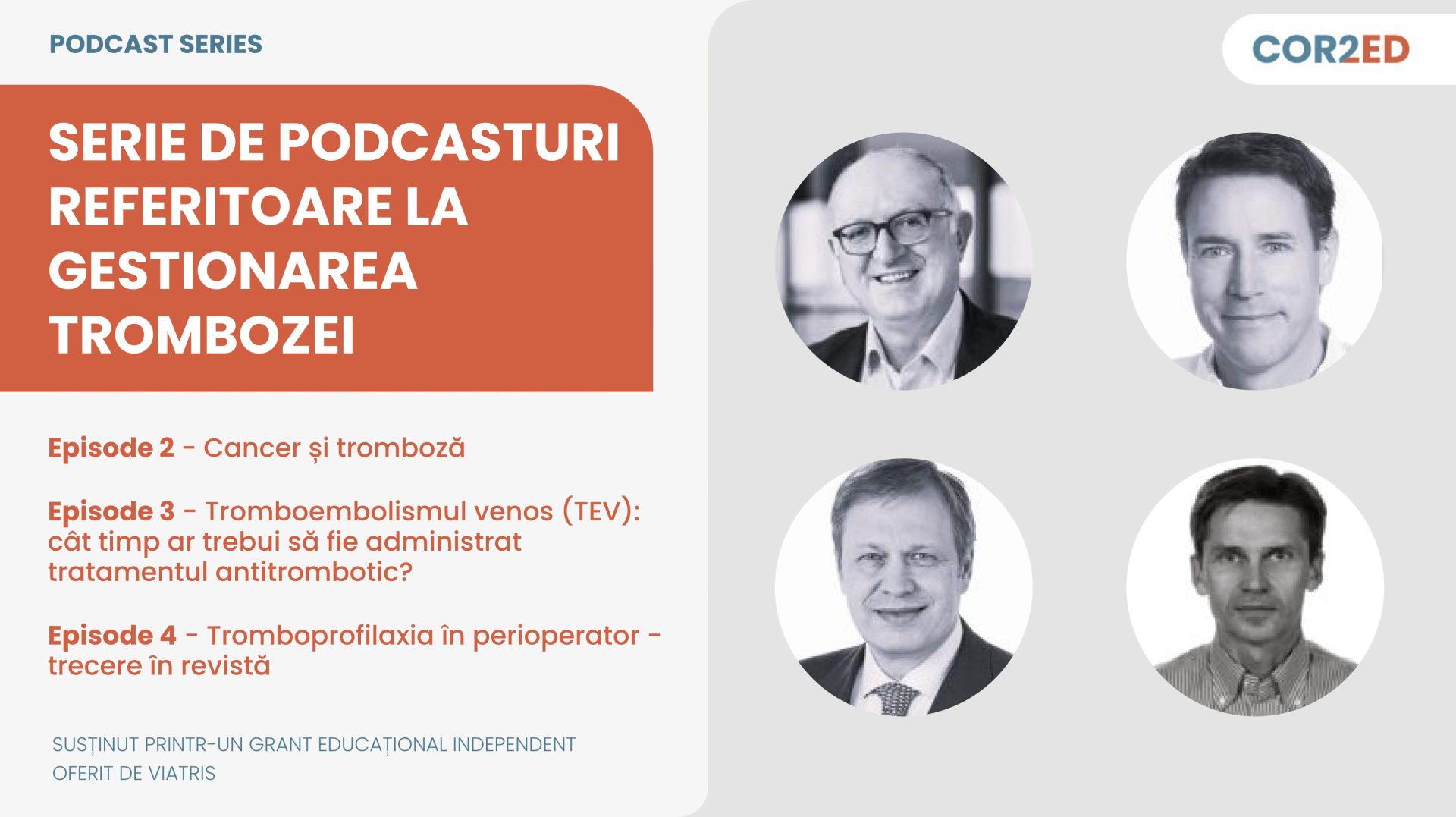
 Downloadable
Downloadable  21 MIN
21 MIN
 May 2025
May 2025 